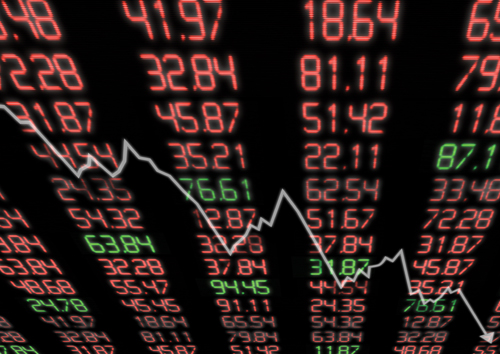Experienced Investor
Where is a ‘safe’ place for your money?

Investors who believe that stock markets may be due a correction have a problem: ‘safe’ assets aren’t very safe any more.
In normal circumstances, if investors were worried about what was happening in the global economy, they would put their money in a savings account, in government bonds or in blue-chip companies on the stock market.
The problems with savings accounts are well-known: The top easy access savings account currently pays just 1.25%, well behind inflation at 2.9%. This means investors are losing money in real terms and it is not a solution for long-term savings.
For government bonds, the income on a 10-year UK government bond is currently around 1.3%. This means investors must tie up their money for 10 years for a return below the current rate of inflation. Again, this is not an appealing option, and not ‘safe’ in the sense of preserving the purchasing power of your savings.
The same is true of high quality blue chip companies on the stock market. They have been popular and in some cases the share prices for these companies now look high relative to history. This is particularly true for US technology companies such as Apple, Amazon and Google.
David Jane, head of multi-asset management at Miton, says that investors shouldn’t be too worried about a crash in the stock market, but should look for areas that offer better value. He says: “There are two things that would bring the current bull market to an end. The first would be a recession and there is no evidence of the economy slowing down at the moment; the second would be bond yields rising rapidly. That would see investors come out of the stock market and into bond markets.”
He believes that the key thing for investors in this environment is to ensure they are properly diversified, which means holding a mix of different types of investment. He is using short-dated corporate bond funds in his portfolios. He is also holding more ‘value’ type strategies. Examples of funds employing these strategies might be the Royal London Investment Grade Short Dated Credit, and the Schroder Income fund.
Tom Becket, chief investment officer at Psigma, likes the TwentyFour Focus fund, which also invests in short-dated bonds. He believes investors also need a toe in the future and, as such, invests in the RobecoSAM Smart Materials fund, which invests in companies using innovative materials and disruptive technologies. He is also investing in the Japanese markets, believing that it looks good value at these levels.
Chris Atkinson, head of consumer distribution at Zurich, says that as well as being diversified and beating inflation, investors should avoid making any knee-jerk reactions when faced with falling markets: “Don’t be panicked by market volatility and stick to your investment plan. If markets go into freefall, resist any knee-jerk reaction. A change to your investment strategy may be called for, but equally this calls for consideration and planning.”
He also suggests investors carry out a portfolio health check, and reassess holdings even if they have performed well: “It’s important not to become complacent and assume it’s doing all the work. Carrying out a health check on your portfolio to assess any damage will ensure you are still well diversified and balanced. To protect against future stock market shocks, hold a mix of cash, fixed interest and shares spread across global markets.”
It is not easy to find the right home for your savings in the current environment. However, if you look around, there are still opportunities to make lower risk returns from financial markets that will also protect against inflation.